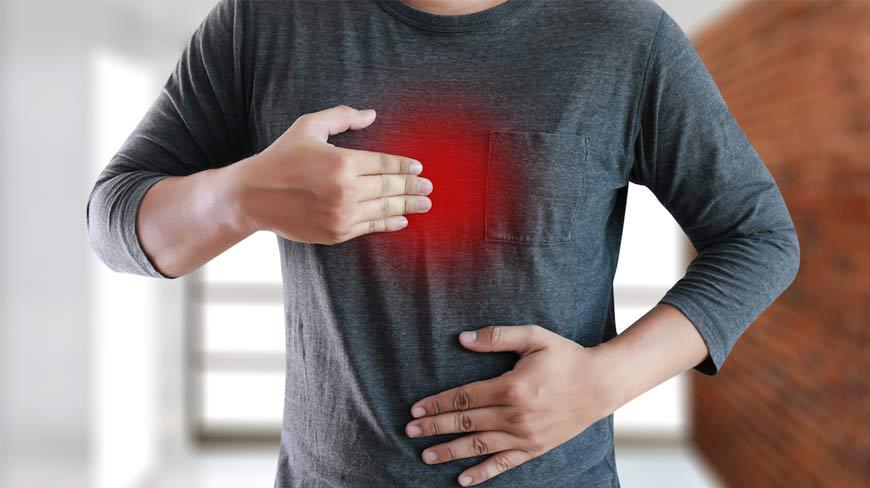What Does Acid Reflux Feel Like?
If you’ve ever had that uncomfortable, burning sensation in your chest after eating a large, spicy, or fatty meal, you already know the answer to the question, “What does acid reflux feel like?” That feeling is known as heartburn and is the primary symptom of both acid reflux and GERD.
Heartburn occurs when stomach contents, including stomach acid, flow back into the esophagus. This happens when the lower esophageal sphincter (LES), the muscle between the esophagus and the stomach, relaxes. During normal functioning, the LES opens to allow food to move between the esophagus and the stomach and closes when eating is not happening. When it dysfunctions, the LES opens when it shouldn’t.
Occasional heartburn is uncomfortable, but it’s nothing to worry about. Many people occasionally experience heartburn. But it could be a symptom of a more serious condition.
What Does Acid Reflux Feel Like?
Acid reflux feels different for everyone, but common symptoms include:
- Burning sensation in the chest (heartburn)
- Regurgitation of food or sour liquid
- Chronic, dry cough
- Difficulty swallowing
- Feeling like there’s a lump in your throat
- Sore throat
If acid reflux happens at night, you may experience symptoms like:
- Coughing
- Laryngitis
- Asthma symptoms
- Sleep disruption
When It Might Be GERD
If you often wonder what does acid reflux feel like beyond simple heartburn, recurring symptoms more than twice a week could point to GERD.
GERD (gastroesophageal reflux disease) must be diagnosed by a doctor. If you experience mild acid reflux more than two times per week or severe acid reflux weekly, you may have GERD. It’s a chronic condition that can lead to more serious symptoms and conditions.
The backflow of acid from GERD can cause symptoms like difficulty swallowing, chronic cough, and tooth damage. If not controlled, damage to the esophagus can lead to ulcers, scarring, and esophageal cancer.
GERD can usually be treated with lifestyle changes or medication. Sometimes, surgery is necessary.
Risk Factors for GERD
Some factors can predict your likelihood of developing GERD. They include:
- Smoking
- Eating large meals
- Eating late at night or lying down after eating
- Eating fatty or fried foods
- Drinking alcohol or coffee
- Taking certain medications
- Obesity
- Hiatal hernia
- Pregnancy
- Connective tissue disorders
- Gastroparesis
Suffering from Heartburn?
If you’re often asking yourself what does acid reflux feel like, there are some lifestyle changes you can make to help get rid of acid reflux:
- After eating, don’t lie down for two or three hours
- Raise the head of your bed
- Eat smaller, frequent meals instead of three large meals
- Avoid tight clothing
- Stop smoking
- Lose extra weight
Over-the-counter antacids can be used, too. However, if you’re taking them more than two times per week or your symptoms are getting worse, you may have GERD. Contact your doctor to talk about your health history and your symptoms, rule out other conditions, and figure out if you have acid reflux or GERD. Your doctor can come up with a treatment plan and help you avoid the complications of untreated GERD.
Request Appointment
Related:


